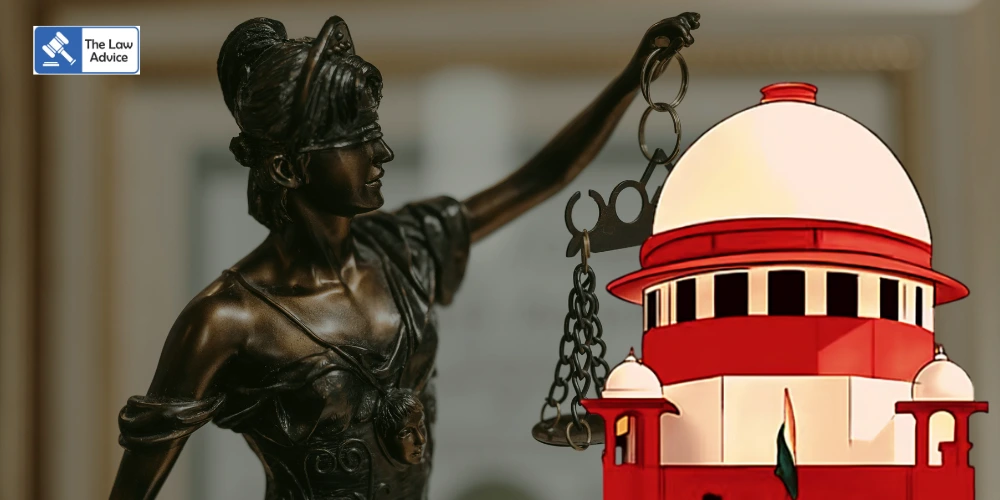New Delhi, August 28, 2025
In a significant clarification of execution law, the Supreme Court has held that the bar under Order XXI Rule 102 of the Code of Civil Procedure, 1908 (CPC), which prevents a transferee pendente lite from resisting execution of a decree, applies only to transferees from the judgment-debtor. It does not extend to transferees who derive title from a third party unconnected with the original litigation.
A Bench comprising Justice Vikram Nath and Justice Sandeep Mehta delivered the ruling while allowing an appeal in the case of Tahir V. Isani v. Madan Waman Chodankar (Deceased) through his LRs & Ors.
Background of the Case
The dispute pertained to a suit property in Goa, where the Respondent was a leaseholder who had obtained a decree in his favour. The appellant, Tahir V. Isani, raised objections to the execution of that decree under Order XXI Rule 97 CPC, claiming ownership of the property.
The appellant had purchased the property in 2007 from M/s Rizvi Estate & Hotels Pvt. Ltd., which in turn had bought the property in 1988 from the original owner, Mrs. Misquita. Importantly, Rizvi Estate was not a party to the original civil suit (Special Civil Suit No. 97/1996/B).
The Executing Court dismissed the objections, and the Bombay High Court upheld this dismissal on the ground that since the appellant purchased the property during the pendency of the suit, he was barred under Order XXI Rule 102 CPC. Aggrieved, the appellant approached the Supreme Court.
Supreme Court’s Observations
Setting aside the High Court’s decision, the Bench clarified the limited scope of Rule 102.
• Rule confined to transferees from judgment-debtor: The Court held that the bar under Rule 102 applies only where the transferee derives title from the judgment-debtor during the pendency of the suit. It does not extend to transferees from independent third parties.
• Bona fide purchasers protected: Even if the transfer took place pendente lite, a purchaser from a third party, unconnected with the original litigation, is entitled to raise objections under Order XXI Rules 97–101 CPC.
• Equitable purpose of Rule 102: Justice Nath, authoring the judgment, observed:
“Rule 102 of Order XXI intends to protect decree-holders against unscrupulous judgment-debtors and their transferees who try to defeat decrees by creating further rights pendente lite. However, when the transferee traces his title from a party who is not the judgment-debtor, the bar of Rule 102 does not apply.”
• Application to present case: Since the appellant derived title from Rizvi Estate, which had acquired the property in 1988 – well before the filing of the suit – he was not a transferee from the judgment-debtor (the Maliks). Hence, he was a bona fide third-party purchaser entitled to protection.
The Supreme Court allowed the appeal, holding that:
• The appellant’s objections under Order XXI Rule 97 were maintainable.
• Rule 102 did not bar his right to contest execution since his title did not flow from the judgment-debtor.
• The matter must go back to the Executing Court for full enquiry and adjudication under Rules 97–101 CPC.
The Court directed the Executing Court to conclude the enquiry and decide the objections “in accordance with law.”
Significance of the Judgment
This ruling marks an important clarification in execution jurisprudence:
• It ensures that decree-holders are protected against collusive pendente lite transfers made by judgment-debtors.
• At the same time, it safeguards bona fide third-party purchasers who buy properties in good faith from independent parties.
• It prevents overextension of Rule 102, which could otherwise penalize innocent purchasers with no nexus to judgment-debtors.
By balancing these competing equities, the Supreme Court has reinforced the doctrine that execution law must be fair both to decree-holders and to third parties with legitimate claims.
Cause Title
Tahir V. Isani v. Madan Waman Chodankar (Since Deceased) through his Legal Representatives & Ors.
